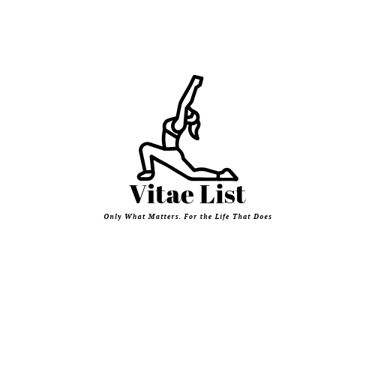When to Take Your Supplements for Maximum Absorption
Learn the best time to take your supplements—morning, night, with food, or post-workout—to optimize absorption and effectiveness. A complete guide to smart supplement timing.
SUPPLEMENTS
Vitae List
7/23/20253 min read


When to Take Your Supplements for Maximum Absorption
Timing tips to help you get more from what you take—morning, night, with food, or post-workout?
Disclosure: As an Amazon Associate, we earn from qualifying purchases. Some of the links in this post may be affiliate links, which means we may earn a small commission at no extra cost to you.
You’ve invested in quality supplements, but there’s one important factor that’s easy to overlook: timing.
The time of day you take your vitamins and supplements—and whether or not you pair them with food—can affect how well your body absorbs and uses them. Some nutrients are fat-soluble, others are energizing, and a few are best taken right before bed.
Here’s your complete guide on when to take your supplements for optimal results, broken down by type.
☀️ Morning: Energizing and Daily Support Supplements
Some supplements are best taken in the morning, either with or shortly after breakfast.
✅ Multivitamins
Best taken with a meal that contains some fat to help absorb fat-soluble vitamins (A, D, E, and K).
Avoid taking with coffee, which may reduce absorption of certain minerals like iron.
✅ B Vitamins (including B12)
Can give a natural energy boost, support metabolism, and improve mood.
Take early in the day to avoid sleep disruption.
✅ Vitamin C
Supports immune function and iron absorption.
Fine to take any time, but taking it in the morning with food may reduce stomach upset.
✅ Adaptogens like Rhodiola Rosea
Known for enhancing energy and mental clarity.
Best taken on an empty stomach in the morning or early afternoon.
🍽️ With Meals: Fat-Soluble and Digestive Support Supplements
Many supplements are better absorbed with food, especially those that require fat for proper uptake.
✅ Vitamin D
Fat-soluble and more bioavailable when taken with a meal that includes healthy fats (like avocado, nuts, or olive oil).
Morning or midday is best to align with your body’s natural rhythm and avoid interference with melatonin production.
✅ Omega-3 Fatty Acids (Fish Oil)
Taking with food—especially meals containing fat—reduces fishy aftertaste and improves absorption.
Can be taken morning or night.
✅ Digestive Enzymes & Probiotics
Digestive enzymes: Take with meals to help break down food.
Probiotics: Take either on an empty stomach or as directed on the label—timing can vary based on formulation.
💪 Post-Workout: Recovery & Muscle Support
After physical activity, your body is primed to absorb certain nutrients more effectively.
✅ Protein Powder
Taking protein within 30–60 minutes post-workout supports muscle repair and recovery.
✅ Creatine
Can be taken before or after workouts, but pairing it post-workout with carbs may enhance uptake into muscle tissue.
✅ Magnesium
Supports muscle relaxation and recovery—great for evening use, especially after training.
🌙 Evening: Sleep, Calm, and Recovery Support
Some nutrients are relaxing or sedating, and work best when taken in the evening or just before bed.
✅ Magnesium
Helps ease muscle tension, stress, and sleep. Best taken 30–60 minutes before bed.
✅ Zinc
Supports immune repair and hormonal balance during sleep. Take in the evening, but not with calcium or iron(which can compete for absorption).
✅ Melatonin or Sleep Support Blends
For improved sleep onset, take 30–60 minutes before bedtime.
🚫 Common Timing Mistakes to Avoid
Taking everything at once: This can overwhelm the body and cause competition for absorption (e.g., calcium, zinc, and iron all use similar pathways).
Skipping meals with fat for fat-soluble vitamins: Vitamins A, D, E, and K need dietary fat to be properly absorbed.
Mixing stimulants and sleep-support supplements: Taking B12 or rhodiola too late in the day may interfere with restful sleep.
Chugging vitamins with coffee: Caffeine can impair absorption of iron and B vitamins.
✅ Final Tips for Better Supplement Absorption
Pair supplements with meals that match their needs—fat-soluble with healthy fats, energizing with breakfast, relaxing before bed.
Split doses for better absorption (e.g., two smaller doses of magnesium instead of one large one).
Follow label instructions, but adjust based on your body’s response and schedule.
Stay consistent—timing matters, but regularity is even more important.
🧠 Final Thoughts
Maximizing the benefits of your supplements isn't just about what you take—it’s about when and how you take them. A little attention to timing can go a long way in supporting your energy, recovery, and overall wellness.
So before you toss all your capsules down at once, pause and consider: is your body ready to absorb what you’re giving it?
